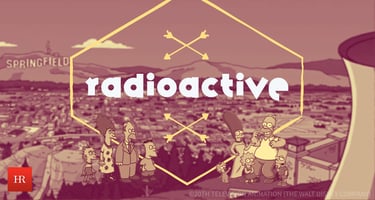There have been times when I've walked into an organization that appears to be a turbo-charged...
Defining Talent. And Why it Matters.
.jpeg?width=860&height=459&name=Humareso%20Blog%20Posts-1-Defining%20Talent%20(2).jpeg) Hurray! You’ve successfully hired Bob to fill the Sr. Widget Specialist job you’ve had open for 6 months. It was a challenging role to fill for a variety of reasons; factors that came into play included location, compensation, and organizational factors such as your WFH policy and benefit offerings.
Hurray! You’ve successfully hired Bob to fill the Sr. Widget Specialist job you’ve had open for 6 months. It was a challenging role to fill for a variety of reasons; factors that came into play included location, compensation, and organizational factors such as your WFH policy and benefit offerings.
With the start date of Bob confirmed (and he showed up!), it can be very easy to assume the “talent” part of the employee experience is over and done. You found the talent, acquired the talent, and now have the talent sitting at his desk and doing the work.
But it’s not quite that simple. Nor is thinking about Bob’s talent - with which he is gifting your company! - over and done. Here’s how Merriam-Webster defines Bob’s “talent:”
“a special often athletic, creative, or artistic aptitude: general intelligence or mental power: a person of talent or a group of persons of talent in a field or activity”
What Often Happens
The term “talent,” when used in the realm of HR and a business context can be simultaneously ambiguous and pretentious. You may toss the word around, like jugglers at a side show, but how do you define talent in your organization? Do you even have a definition?
Some organizations (or more often than not - the managers and executives) consider it to only refer to the highly skilled or to those who drive and impact organizational growth. Other companies, even if they don’t say it aloud, use it as a term that divides and differentiates between job groups or types of positions - saying (or thinking) things like “corporate and professional roles are talent….folks on the shop floor or in the field are associates/assets.” (Ewwww; that’s brutal. But I’ve heard it.)
Many organizations, however, simply lack a shared definition. Just because Recruiters are called Talent Acquisition Specialists…doesn’t mean anyone (even the Recruiters!) has a common understanding.
When I talk about talent (in the HR and business context) this is my definition:
"talent encompasses an individual's unique blend of skills, experience, and personal qualities, enabling them to effectively contribute to an organization's objectives and achievements."
Furthermore, TALENT, in the organizational context, refers to a collective of individuals - each with their distinct blend of skills, experience, and personal attributes, who, when working TOGETHER, contribute positively to an organization's goals and success.
Why do I like this description? First and foremost, it acknowledges that a collection of human beings (such as in an organization!) is heterogenous. The resulting multifaceted kaleidoscope when we bring together people with varying talents is a whole … but we can still see, identify, and appreciate the individual elements.
Secondly, it speaks to an individual’s personal qualities. Innate or learned, this may include things such as propensity to learn, work style or communication preferences.
Why it Matters
Once Bob, your new Sr. Widget Specialist starts on Day 1 (signs his handbook, completes Harassment Training and gets his newly delivered laptop set up), his TALENT JOURNEY begins in earnest. And will never stop until the day he leaves the organization (and beyond).
As an employer you have multiple opportunities to understand, recognize and celebrate Bob’s unique and exceptional skills, experience, and personal qualities.
Bob has certainly brought some innate tendencies with him; perhaps he’s a strong writer and dislikes public speaking. But that doesn’t mean he lacks desire to - or can’t - develop strong presentation skills. Understanding this, and providing opportunities for Bob, is directly at the heart of your development and performance management philosophy.
In addition, the promotion, activation, and alignment with your organizational culture (starting at the recruiting and hiring stage!) moves Bob along a continuum throughout his tenure. There are infinite opportunities to ensure Bob aligns with the company’s cultural elements including behaviors, norms, traditions and how navigating the organization will allow both Bob and the company to benefit from his unique talent. Oh - and important note: promoting cultural affinity is NOT a once-and-done (“we do a cool activity at New Employee Orientation!”) but should rather be part of every decision made and every employee-impacting and HR practice, policy, or process that is implemented.
And all these elements roll into Bob being an engaged (you DO define engagement beyond just doing surveys? right?) and productive employee. Using his TALENT to effectively contribute to your organization's objectives and achievements.
Talent is not just a buzzword. It’s not just about sounding more current and modern by saying “we need to hire the right talent” instead of “we need to hire the right employees.”
Having a talent mindset starts with a definition of the word. A talent strategy is about understanding the interconnectivity of hiring and onboarding and development and engagement …and all the way along the continuum to offboarding. It’s about envisioning - and enabling - a journey.
And this talent journey is not just for Bob and his fellow Sr. Widget Specialists; Sally in the Distribution Center is also on a talent journey.
So get Sally a vehicle, give her the keys, and help her navigate down the road too.





Blog comments